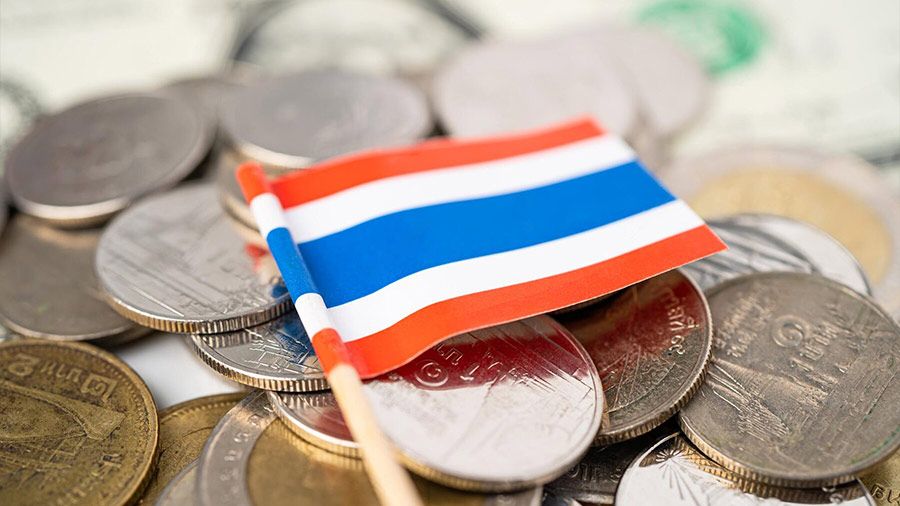Taxes for Foreigners in Thailand in 2024

For many foreigners, moving to Thailand represents new opportunities, whether it's purchasing property, starting a business, or working under a contract. An important aspect of life in a new country is taxation, especially if you plan on long-term residence, property purchase, or engaging in commercial activities. Understanding the tax system will help you avoid unpleasant surprises and plan your finances wisely. In this article, we will discuss the key taxes that foreigners face in Thailand in 2024.
Property Taxes in Thailand
The most recent changes to Thai tax legislation were made in 2020, and it's important for those purchasing (or planning to purchase) property or land to be aware of them. Tax obligations vary depending on the form of ownership—leasehold or freehold. Let's look at the main types of property taxes:
- Tax Type: Transfer Fee
- Rate: 2%
- Payer: Buyer/Seller
- Description: Paid upon the transfer of rights
- Tax Type: Leasehold Registration Fee
- Rate: 1%
- Payer: Buyer/Seller
- Description: For registering leasehold rights
- Tax Type: Stamp Duty
- Rate: 0.1-0.5%
- Payer: Seller
- Description: On property transactions
- Tax Type: Withholding Tax
- Rate: Progressive
- Payer: Seller
- Description: Depends on the length of ownership
- Tax Type: Business Tax
- Rate: 3.3%
- Payer: Seller
- Description: On the sale of commercial property
2.1. Taxes when Buying Property
When buying property in Thailand, foreigners should consider the registration fee and government levy. For example, the registration fee for freehold is 2% of the transaction value, while for leasehold, it is 1%. These taxes are usually shared between the seller and buyer by mutual agreement, but the buyer is obligated to pay their portion upon registration.
2.2. Property Ownership Taxes
Property ownership taxes in Thailand depend on whether the property is used for personal residence or rented out. For residential properties, rates vary based on the property's value and type of ownership. For instance, owners of properties valued under 50 million baht do not pay property tax, while more expensive properties have rates ranging from 0.02% to 0.10%.
2.3. Taxes when Selling Property
When selling property in Thailand, the seller faces several taxes:
- Registration Fee (1% for leasehold, 2% for freehold of the transaction value).
- Stamp Duty (0.1% for leasehold, 0.5% for freehold of the transaction value).
- Business Tax (3.3%) if the property is sold within five years of purchase.
- Withholding Tax, which is progressive and depends on the duration of property ownership and the profit made. The longer you own the property, the lower the withholding tax.
2.4. Taxes on Rental Income
Foreigners renting out property are required to pay income tax. Residents and non-residents of Thailand are taxed at different rates. For residents, the rate can range from 5% to 35%, depending on income. Non-residents are taxed at a flat rate of 15%. However, there are tax deductions available, such as depreciation, to reduce the tax burden.
Income Taxes in Thailand
3.1. Personal Income Tax
Personal income tax in Thailand is paid by all individuals working in the country, including foreigners. However, not all categories of citizens are required to pay tax on income earned abroad. For example, if income is earned outside Thailand and not transferred into the country within the calendar year, it is not taxed.
3.2. Taxable Income
The following types of income are subject to taxation in Thailand:
- Employment income.
- Business profits.
- Dividends and interest.
- Rental payments.
- Profits from selling property.
3.3. Personal Income Tax Rates in Thailand
Thailand's income tax system is progressive. Rates range from 0% to 35%, depending on the amount of income.
3.4. Tax Deductions
Tax deductions in Thailand cover a wide range of categories: life insurance, medical expenses, charitable donations, and more. Deductions help reduce the taxable base and, consequently, the amount of tax payable.
3.5. Income Tax Filing
Income tax returns in Thailand are filed annually by the end of March. Foreigners working or conducting business in Thailand are required to declare all sources of income, both domestic and abroad.
3.6. Petroleum Income Tax
Companies operating in the petroleum industry are subject to a separate income tax, with rates varying based on production volume and profits.
3.7. Sector-Specific Taxes in Thailand
Certain types of businesses, such as the hotel and restaurant industry, are subject to special tax rates. This is due to economic characteristics and attempts to regulate specific sectors.
VAT in Thailand
Value Added Tax (VAT) in Thailand is set at 7%.
